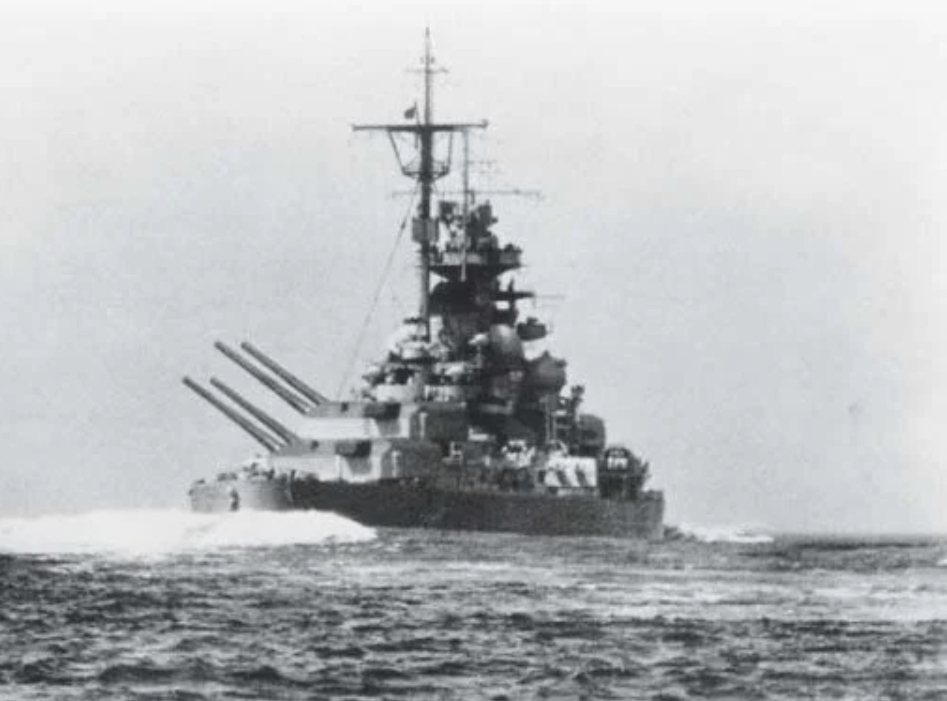
de Joseph Hall
Locotenentul Ludwig Kreusler a aruncat o privire grăbită peste corespondența care se acumulase în timpul lunii în care nava X-8 fusese plecată de la bază. La fundul grămezii a găsit scrisoarea pe care o căuta și ochii i s-au înveselit. Era o scrisoare groasă, adresată cu o scriere feminină, iar ștampila originală era de la Washington, D.C., SUA.
“Excelența sa vă va primi, domnule”, a spus ordonanța, intrând liniștit și luând poziția de “drepți”.
Cu o ușoară ridicare de umeri, locotenentul a pus scrisoarea în buzunar și a părăsit camera.
L-a găsit pe amiralul Von Herpitz, numit “vrăjitorul mării”, la birou. Pe măsură ce tânărul intră, bătrânul amiral se ridică și se apropie. Acest gest neobișnuit de favorabil l-a cam jenat pe tânărul ofițer până când bătrânul, punând ambele mâini imense pe umerii lui, l-a privit în ochi.
“Excelent.”
Un singur cuvânt transmitea o mulțime de laude, de satisfacții. Bătrânul amiral era cunoscut ca un om tăcut. Critica era mai frecventă decât aplauzele.
Locotenentul nu găsea cuvinte. Situația era pentru el extrem de jenantă. El, la fel ca și Herpitz, era un om al faptelor, iar cuvintele îl încurcau.
“Acești englezi”, vorbi bătrânul amiral cu amărăciune, “le vom arăta noi. Ai citit rapoartele? America a intrat în panică din cauza Seronicii pentru că două sute dintre pasageri erau americani.”
Un dosar cu hârtii era pe masă. Kreusler le răsfoi în grabă. Ziarele din Berlin au acordat scufundării Seronicii titluri mari armatei germane, urmate de coloane de bucurie pură. Ziarele din Londra, Paris și unele din New York au numit scufundarea acesteia – o crimă și pe cei care au pus-o la cale – pirați. Dar toate i-au acordat o atenție absolută și neîmpărțită. X-8 devenise vasul de groază al lumii. Berlinul, în mod figurat, îl purta pe tânărul său comandant pe umeri. Se găsea în centrul atenției.
“Te-ai descurcat bine pentru Patrie,” a repetat Von Herpitz în timp ce locotenentul ieșea.
În propria cabină, Kreusler a uitat de Seronica și de X-8. Scrisoarea groasă, cu ștampila de la Washington, l-a absorbit complet.
Timp de doi ani, până la izbucnirea războiului, Kreusler fusese atașat naval la ambasada germană de la Washington. Fusese popular în societatea capitalei americane. Era foarte educat, un savant profund, un gânditor original și un invitat la cină adaptabil și interesant. Dorothy Washburn, cea mai tânără fiică a senatorului din Oregon, își făcuse debutul la Washington în timpul celul de al doilea an de prezență a lui Kreusler acolo. Cei doi s-au întâlnit. Erau opuși total; el înalt, sever, blond, serios în gânduri; ea mică, brunetă, vivace, clocotind de bucuria vieții. Iubirea era inevitabilă.
Scrisoarea groasă era captivantă. Respira în fiecare linie, cuvânt și silabă iubirea fină pe care această femeie minunată i-o dădea. Un paragraf era cel mai uluitor. Așa suna:
“Ca să fiu aproape de tine, iubitule, am aranjat, prin amabilitatea prietenilor noștri, să vin la Berlin ca asistentă medicală. Încă nu știu când, dar voi veni, nu-ți face griji, cât mai repede posibil. Îți este dor de mine, să mă vezi, iubirea mea, la fel cum îmi este mie dor de tine? Ei bine, în curând, poate nu mai este mult până atunci. Nu ai putea aranja să fii rănit – doar puțin, bineînțeles, iubirea mea – astfel încât să pot avea grijă de tine?”
Scrisoarea se încheia cu mesaje de dragoste tandre și asigurări de devotament. Ultima foaie avea un singur cuvânt, “Gata”, și pe partea din spate, o informație foarte importantă, un post scriptum. Acesta zicea:
“P. S. S-au finalizat aranjamentele. Totul este rezolvat. Chiar și tatăl meu și-a dat consimțământul, știind de iubirea mea mare. Plec săptămâna viitoare.”
Și apoi:
“N. B. Nava pe care plec este Seronica.”
In English:
Lieutenant Ludwig Kreusler glanced hurriedly through the mail that had accumulated during the month that the X-8 had been away from base. At the bottom of the pile he found the letter he had been seeking and his eyes brightened. It was a fat letter, addressed in feminine handwriting, and its original postmark was Washington, D. C., U. S. A.
“His Excellency will see you, sir.” The orderly had entered quietly and stood at attention.
With a slightly impatient shrug the Lieutenant shoved the letters into his pocket and left the room.
He found Admiral Von Herpitz, the wizard of the sea, at his desk. As the young man entered the old Admiral rose and came forward. This unusual mark of favour somewhat embarrassed the young officer until the old man, placing both huge hands upon his shoulders, looked into his eyes.
“Excellent.”
The one word conveyed a volume of praise, gratification. The old sea dog was known as a silent man. Censure was more frequent from him than applause.
The Lieutenant could find no word. The situation was for him embarrassing in the extreme. He, like Herpitz, was a man of actions, and words confused him.
“These English,” the old Admiral spoke grimly, “we will teach them. Have you seen the reports? They are having quite a little panic in America also over the Seronica. Two hundred of the passengers lost were American.”
A file of papers lay on the table. Kreusler ran through them hurriedly. The Berlin journals gave the sinking of the Seronica great headlines followed by columns of sheer joy. The London and Paris and some of the New York sheets called the exploit a crime and its perpetrators pirates. But they all gave it utter and undivided thought. The X-8 had become the horror craft of the world. Berlin figuratively carried her young commander on her shoulders. He found himself the hero of the hour.
“You have done well for the Fatherland,” Von Herpitz repeated as the Lieutenant was going out.
In his own cabin Kreusler forgot the Seronica and the X-8. The fat letter with the Washington postmark absorbed him.
Two years, ending with the outbreak of the great war, Kreusler had been naval attaché to the German embassy at Washington. He had been popular in the society of the American capital. He was highly educated, a profound scientist, an original thinker, and an adaptable and interesting dinner guest. Dorothy Washburn, the youngest daughter of the Senator from Oregon, had made her début in Washington during the second winter of Kreusler’s presence there. The two had met. They were exact opposites; he tall, severe, blond, thoughtfully serious; she, small, dark, vivacious, bubbling with the joy of life. Love was inevitable.
The fat letter was engrossing. It breathed in every line and word and syllable the fine love this wonder woman gave him. One paragraph was most astounding. It read:
“To be near thee, loved one, I have arranged, through the gracious kindness of our friends, to come to Berlin as a nurse. Just when is as yet uncertain, but come I will, fear not, as quickly as may be. Dost long for me, to see me, dearest heart, as I for thee? Well, soon perhaps that may not be so far away. Couldst not thou arrange to be wounded—only slightly, of course, my love—so that I might attend thee?”
The letter ended with tender love messages and assurances of devotion. The last sheet bore a single word, “Over,” and on the reverse side a woman’s most important news, a postscript. This read:
“P. S. Arrangements have been completed. Everything is settled. Even my father has consented, knowing of my great love. I sail next week.”
And then:
“N. B. The ship on which I sail is the Seronica.”
